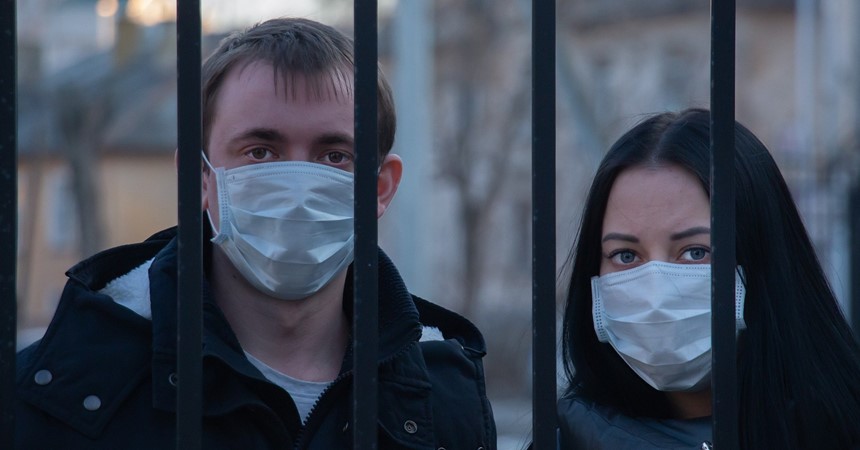We bring our personal experiences of life, death and resurrection to our celebration of Easter. These experiences are varied and can include serious illness, death, a broken relationship, loss of a job, rejection, loneliness, loss of freedom … the list is endless.
On top of these personal experiences, this year we bring a heightened communal experience of dying and rising to our Holy Week Ceremonies. We have all been impacted by COVID-19 to a greater or lesser extent. And to this we add our experiences of drought, fire and flooding rain. We have all been broken open, carved out and raised up to more than we thought we could be.
So how will our personal and shared human experience of life, death and resurrection impact and enrich our Easter Ceremonies this year? There should be a discernible impact because we are the celebrants of the liturgy and we have been changed. If there is no discernible difference, something significant is missing in us, and/or in the way we celebrate the liturgy.
It is not that the liturgy will be different, except of course for the mandatory COVID changes. There will still be palms on Palm Sunday. We will still celebrate Mass on Holy Thursday evening and hear the Gospel of the foot washing, even if there is no washing of feet. We will still celebrate the stark Good Friday liturgy with the passion narrative and an altered form of the Veneration of the Cross. At the Easter Vigil there will be a fire, a Paschal Candle, the Exsultet, all those readings outlining the story of God’s saving love, hopefully there will be a baptism and we will sing Alleluia endlessly because we are finally allowed to!
The difference – if there is one – will be in us. Hopefully our very raw communal experience of life, death and resurrection will lead us into a much deeper participation in the liturgy as celebrants rather than as consumers. Yes, I am back to the celebrant or consumer theme.
I don’t know about you, but I find it very easy to slip into being present at the liturgy as an observer who is doing little more than listening to and remembering historical events that happened 2,000 years ago. That’s a very safe way of being at liturgy. It asks nothing of me really, except to consume what is delivered by a liturgy that is external to me.
However Easter is no mere historical remembering. Like all liturgy, Easter engages us in liturgical remembering. This is far more demanding and scarier, and not at all for the faint hearted.
We are Members of the Body of Christ. The Spirit of God has moved in, so to speak, and abides in us and unites us to and in Christ. Through the presence and power of the Holy Spirit our liturgical remembering actually makes present what we remember – the life death and resurrection of Jesus – for us to participate in. We come to the Easter Ceremonies to join our experiences of life, death and resurrection to Christ’s.
As members of the Body of Christ we participate in the Easter Ceremonies, not as consumers of a historical story, but as celebrants, opening ourselves to be shaped, changed and moved to action by the present reality of Christ’s life, death and resurrection.
Well celebrated, the Easter Ceremonies confront us, and not with insights and questions about a past event. Rather, the Easter Ceremonies confront us with insights and questions about the present reality, and how we, as members of the Body of Christ, participate in and respond to that reality now.
- How do we respond when those who, on the surface appear to support the way of the Gospel, then disappear into the crowd and leave us alone to stand for God’s way of love when the going gets tough?
- Whose feet are we called to wash today through actions of loving service that have nothing to do with power, and everything to do with respect of the other as equal.
- Where are we called to watch and pray with the suffering Christ today?
- Where does the question ‘What is truth?’ need to be asked today?
- Where is Christ being denied today and what is our response?
- Where is Christ being crucified today and where are we standing in relation to it, and what are we saying about it?
- Where is scapegoating and mockery and scourging happening today?
- Where are we, individually and together, called to ‘lay down my/our life’ to bring about the reign of God here and now?
- Where is extraordinary forgiveness needed today? Where are we called to proclaim, ‘Father forgive them, they do not know what they are doing?’
- What are the crosses that the community of Jesus’ disciples need to stand at the foot of in silent grief, witnessing to the death of love and truth, justice and mercy?
- Where is the need for witnesses to hope?
- Where is new life being raised up and how do we feel about it, and respond to it?
- …
If the Easter Ceremonies are to allow us to participate as celebrants, and to be both affirmed and confronted by our liturgical remembering, then the liturgy must not slip into any practices that take us to the safety of historical remembering. Such actions belong outside the liturgy.
What I come to know more deeply each time I celebrate the Easter Ceremonies is that no matter how dark, or frightening, or challenging my experiences of death and resurrection are, Christ is with me in it all – lighting my path, consoling my grief, holding my fear, reminding me that I am not alone and showing me the way to live through it – because I am a member of the Body of Christ and the Spirit of God abides in me.
As I wonder what it will be like to celebrate the Easter Ceremonies this year – broken open as we are by our recent communal experience – I think I am mostly hopeful and nervous that this could be the moment when I, and we, let God in more than I/we might have in the past. And if that happens … well who knows who we will become, and what we will be empowered to do. Liturgical remembering is indeed demanding and scary!
What are you wondering about this Holy Week?
Wishing you the blessings of Easter courage!
Acknowledgements
Photo: © 2019 Diocese of Maitland-Newcastle. All rights reserved.
Image by Наркологическая Клиника from Pixabay

